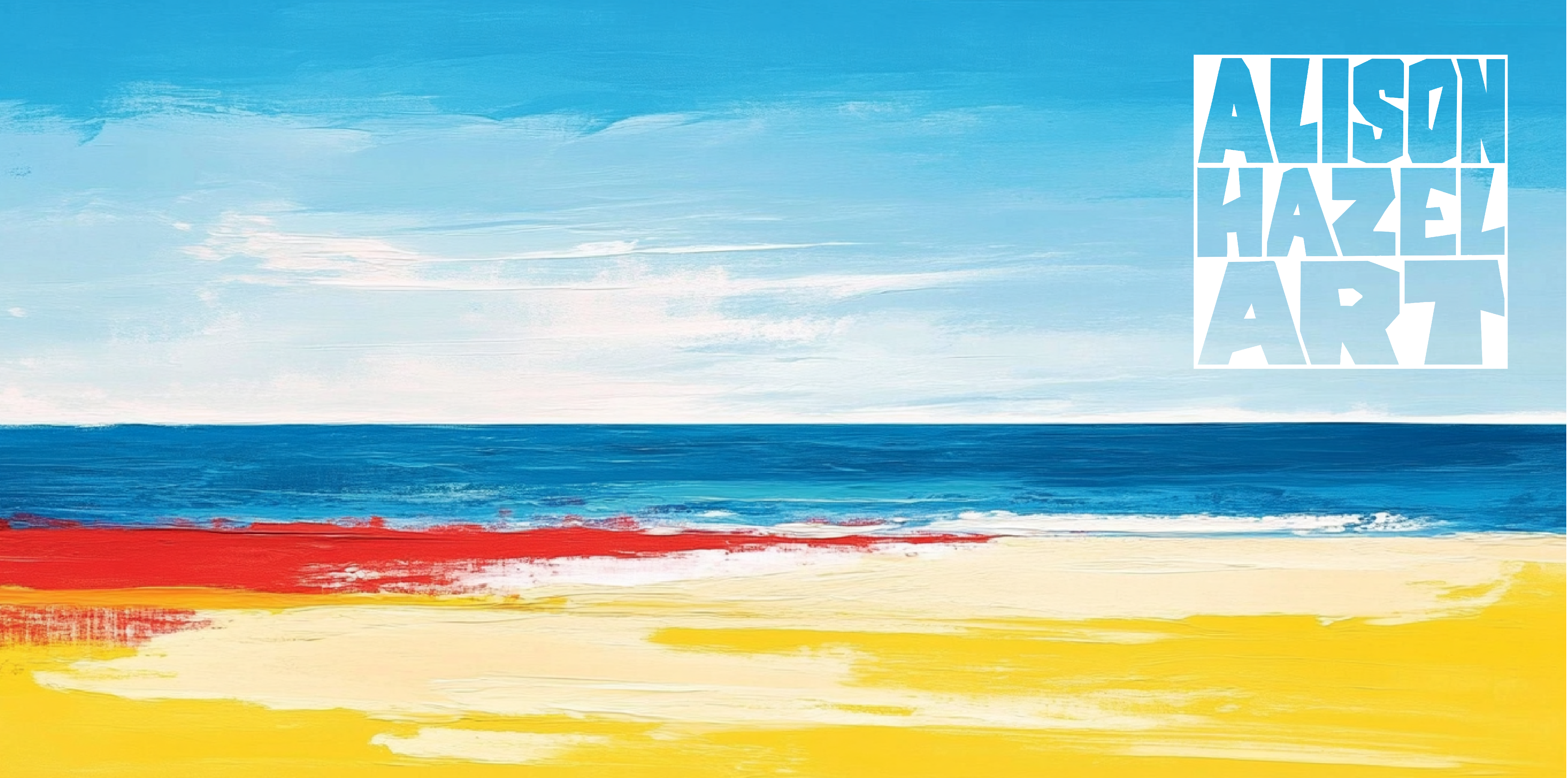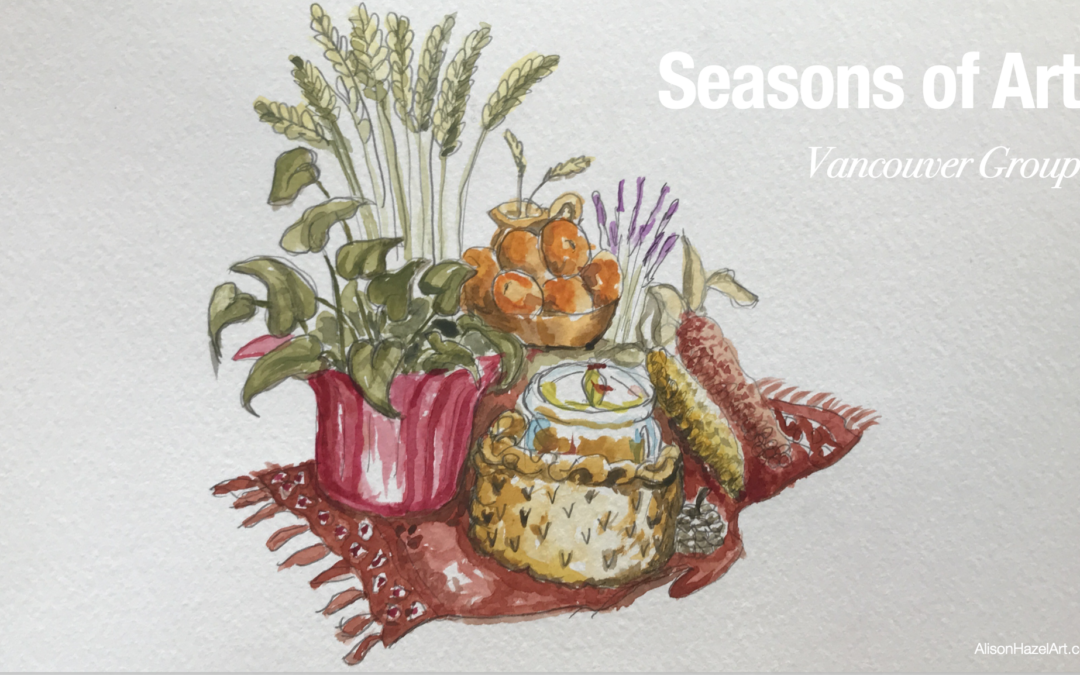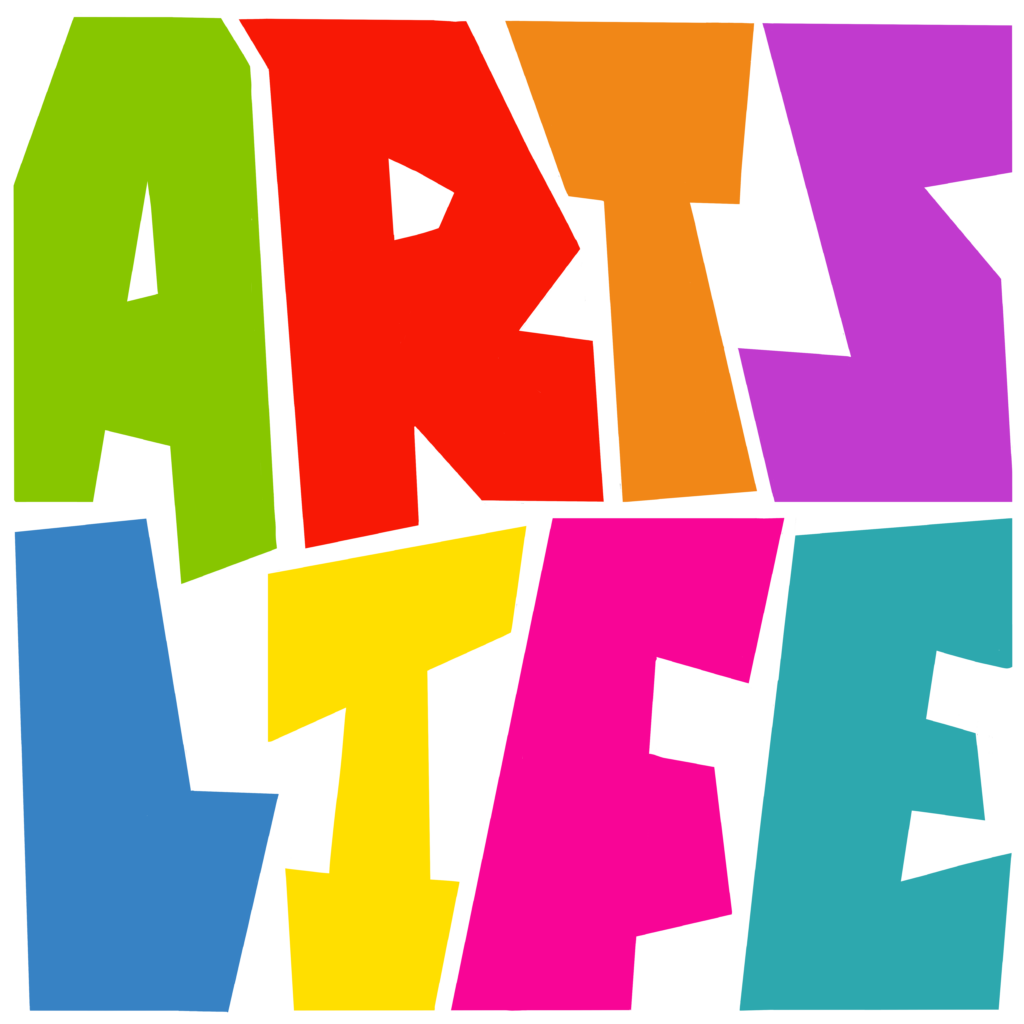The “Seasons of Art” is a group that meets once each season with a focus on developing creativity and self-care through simple art and journaling.
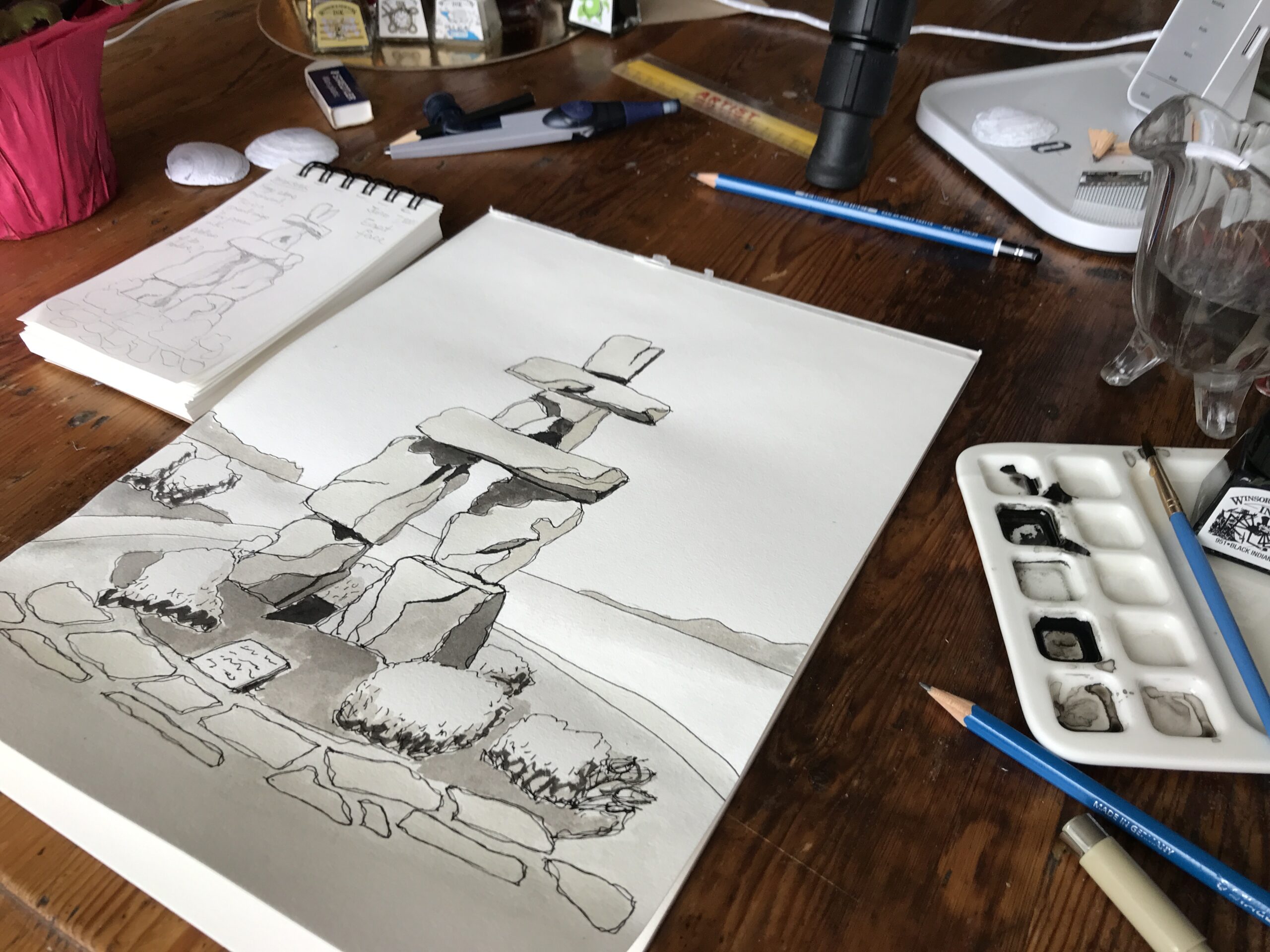
Inukshuk – Pen and Ink
Inspiration
As a part of working on my nature journal, last weekend I went down to the beach at the coast in Vancouver. I was there last week but this week I walked further round the promenade and came across the massive inukshuk.
An inukshuk is a figure made of piled stones or boulders constructed to communicate with humans throughout Northern Canada and the Arctic and the arms point the way. The inuksuk may historically have been used for navigation, as a point of reference, a marker for travel routes, fishing places, camps, hunting grounds, places of veneration or to mark a food cache. The inukshuk in Vancouver was designed by Alvin Kanak.
Although it’s not technically a nature sketch, it certainly is outdoorsy enough for me to want to add it to my nature journal. The grey granite rocks themselves were remarkable from which this sculpture was made.
Process
I packed my little travel sketch bag with a sketchbook two pencils and an eraser. I made sure I had my phone so I could take photographs. I also loaded my Starbucks card so I could get a coffee beforehand. I had my hat and sunglasses and off I went.
I also took my transit pass which is critical for bus rides in Vancouver. I caught the bus down Davie Street to English Bay alighting at Denman Street. From there I walked back along the promenade.
The inukshuk is slightly further down from where I was the previous week when I was drawing the Canada Geese and you can check out that video here. And by the way, I noticed there’s this massive barge that beached itself about 100 meters further south from the inukshuk position. I’ll probably go and do that sketch next time so do lookout for that.
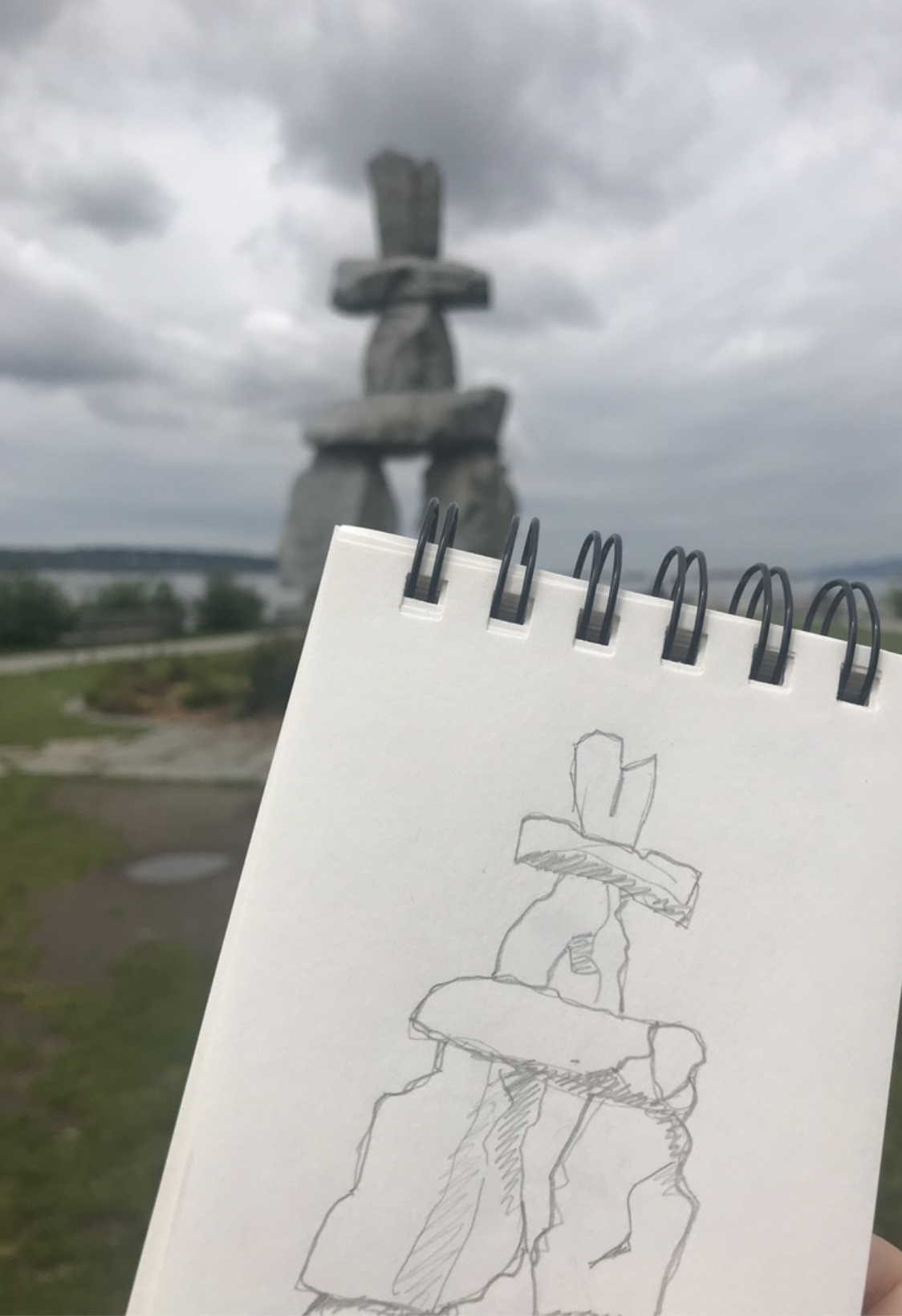
Field Sketch
I took my little field notebook with me and a 2H and a 2B pencil as well but I didn’t use it.
Inukshuk East Face
I decided to sketch the inukshuk monument from the front which is facing west so the ocean is behind it. This is generally the virw most people see as they come down the promenade at the waterfront.
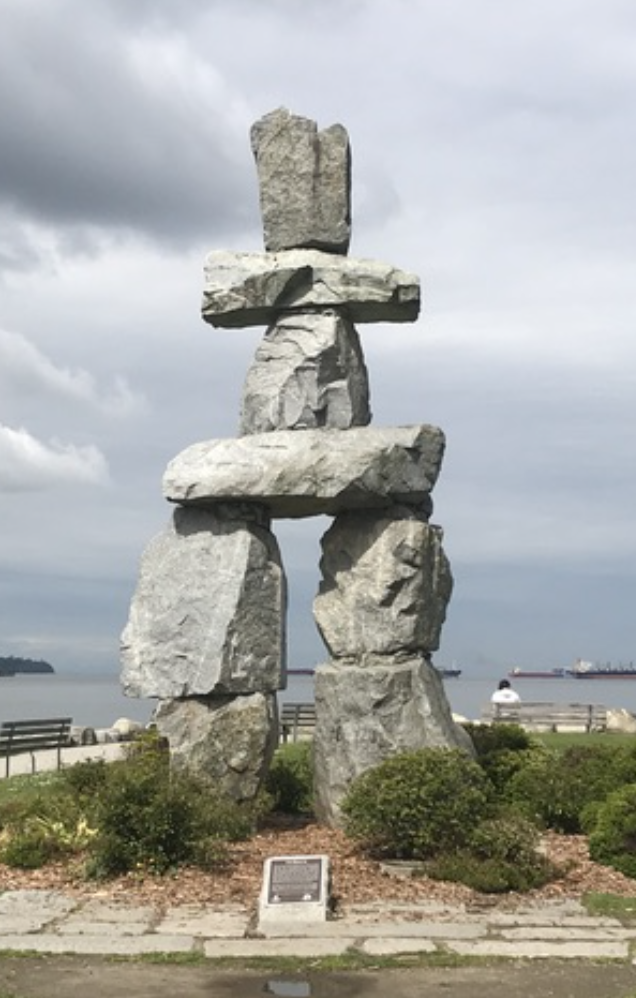
Inukshuk South Face
I then moved around so that I was looking at the south face of the monument but facing north. I decided to draw this side view as well which really doesn’t show you much at all.
You can’t tell by this drawing whether this is an inukshuk or not, but the rocks were super interesting. I knew I wanted to create a pen and ink and grayscale ink drawing, so this was the perfect subject.
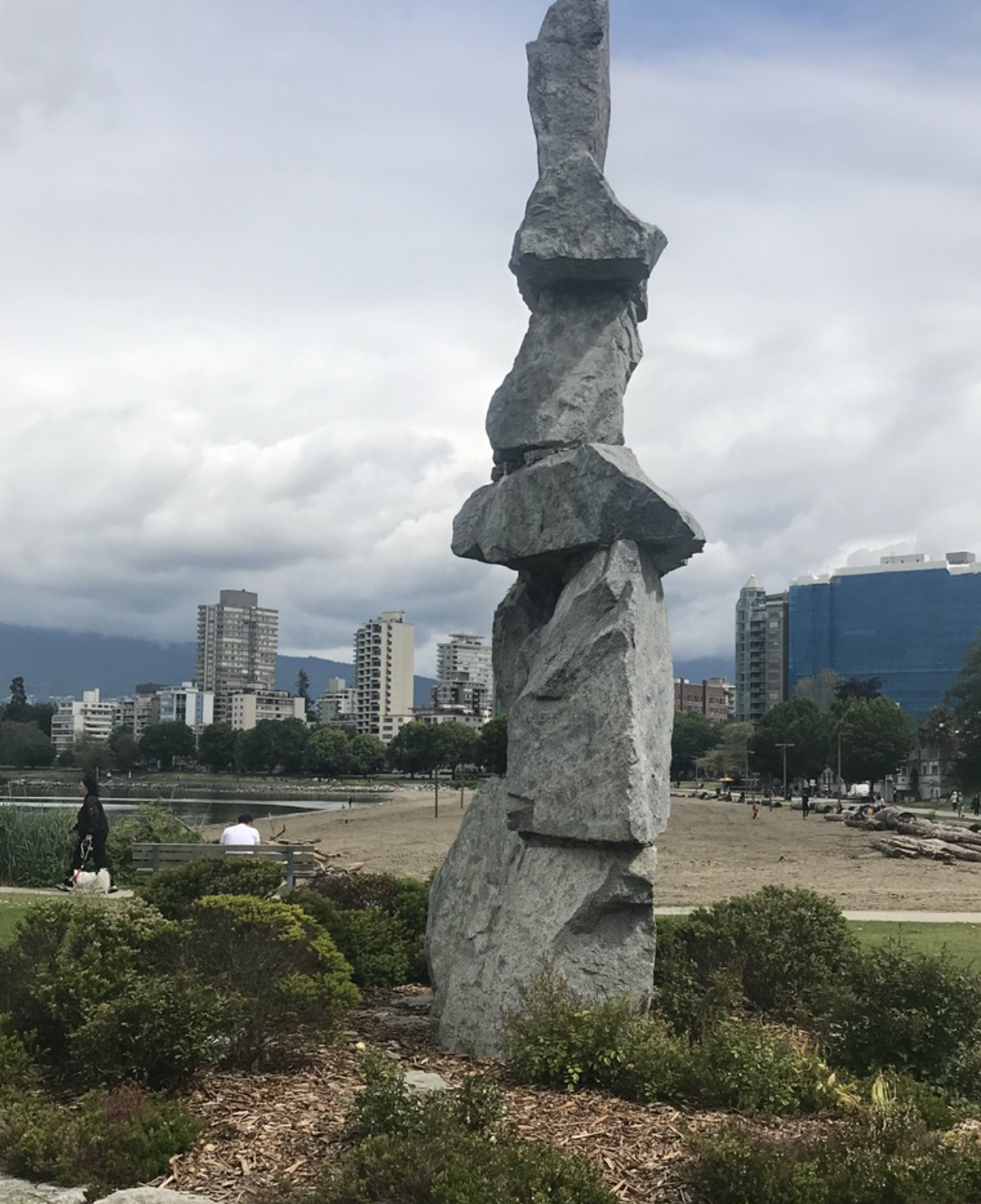
Inukshuk West Face
I went around to the back of it facing inland. This is the west view that you would see if you were on a ship coming into the harbor. I drew the west face of this sculpture which you can see here.
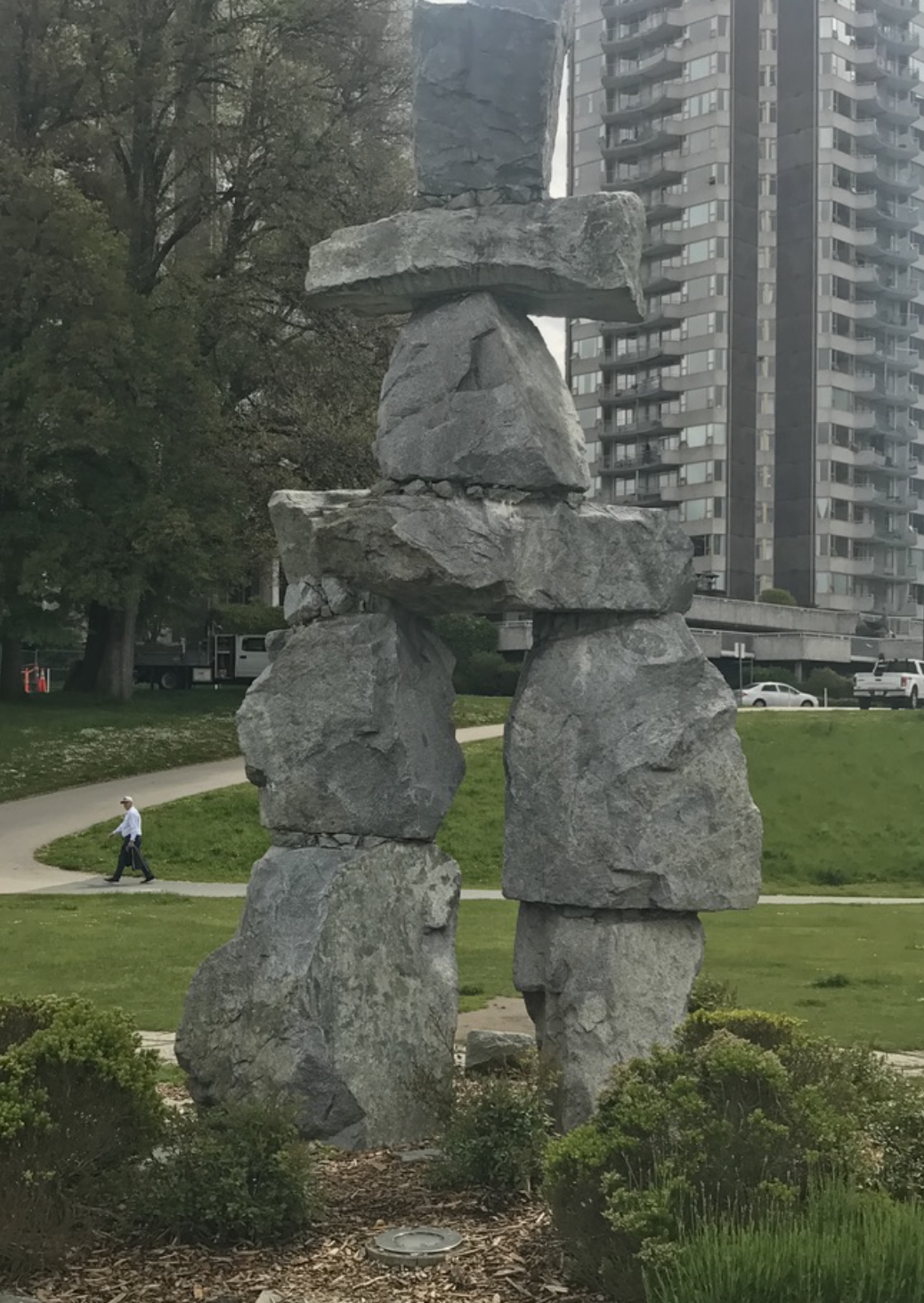
Inukshuk North Face
Finally, I moved round to the north facing side (looking south) of the sculpture and drew again the very vertical slimness of this sculpture.
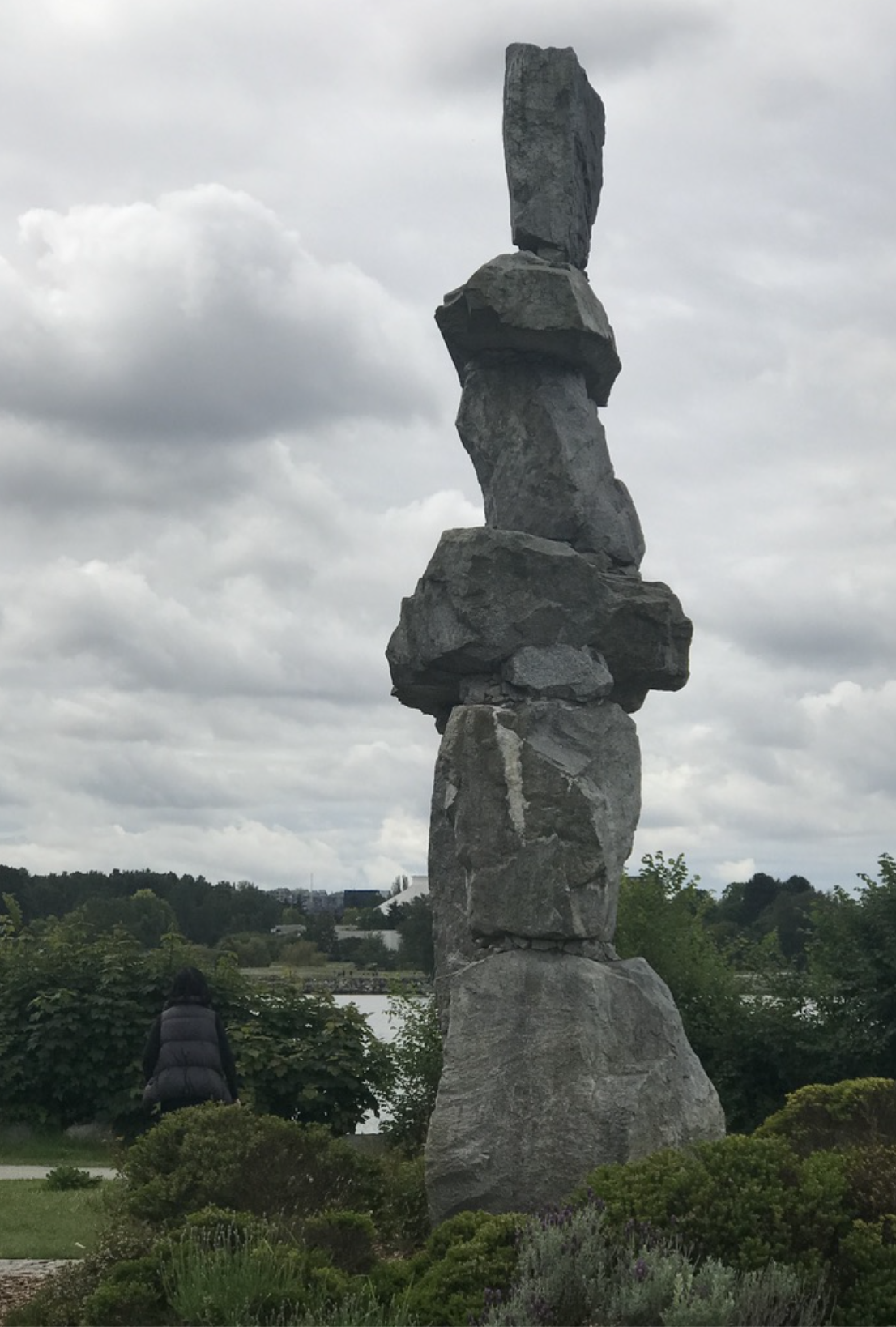
Photographs
In all I did four full sketches trying to pay close attention to the stone, to the shading under the massive blocks to understanding how these rocks are formed. This time I made sure to take photographs of each of these sides of the sculpture so that I have them when I go home as reference photos.
In the past I’ve been reminiscent doing this and I’ve ended up getting home and not quite having all the images I needed. I also took quite a bit of B-roll video to show you exactly where the sea is. We are right on the coast and that the inukshuk is quite a huge tourist attraction as well.
Studio Sketch
The next day, back in my studio, I got out my sketchbook and lightly sketched out the main image that I wanted to do for this inukshuk. My plan is to draw it in pencil then then pen lines and then use black ink to wash for the grey scales on these stones.
Pencil Sketch
I took a bit of time laying out this drawing because although it’s basically just stones, it was important to get it right because the boulders balance on each other. I spent quite a bit of time doing that and I also put edges on some of the chamfered sides of these massive stones.
I added a little bit of the garden below the sculpture to give it some context and form within the page. I then decided to add the sea behind it, because it basically is a naturescape and that’s what I’m going for here.
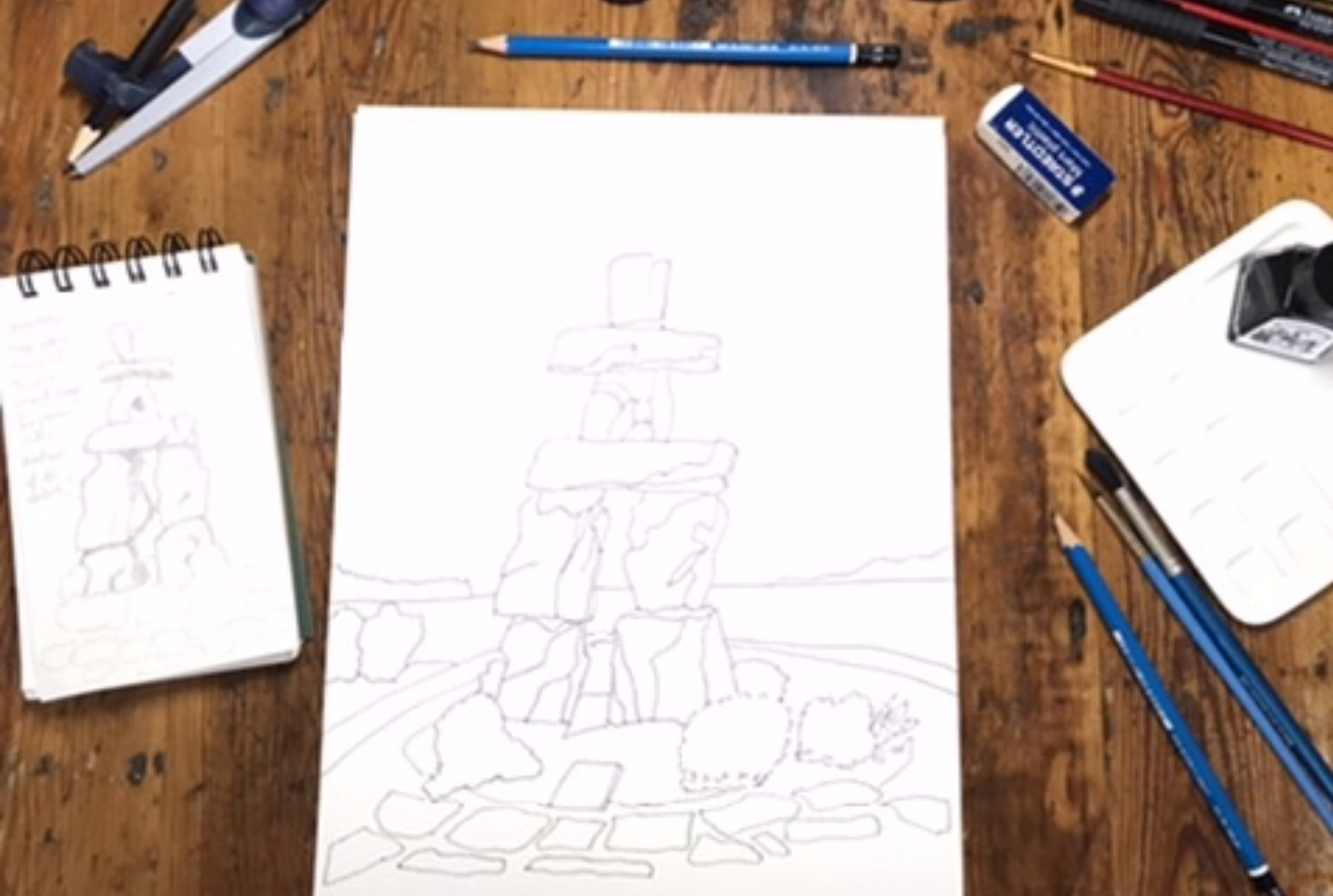
Black Outlines
I took my 0.3mm black pen and went over the main outside lines of this drawing. I took my time here and tried to get it as accurate as I could as this will form the structure of this drawing.
When I was happy with the outlines, I took an eraser and removed all of the pencil lines. You must eliminate the pencil lines because once you put the ink wash on it can’t be removed.
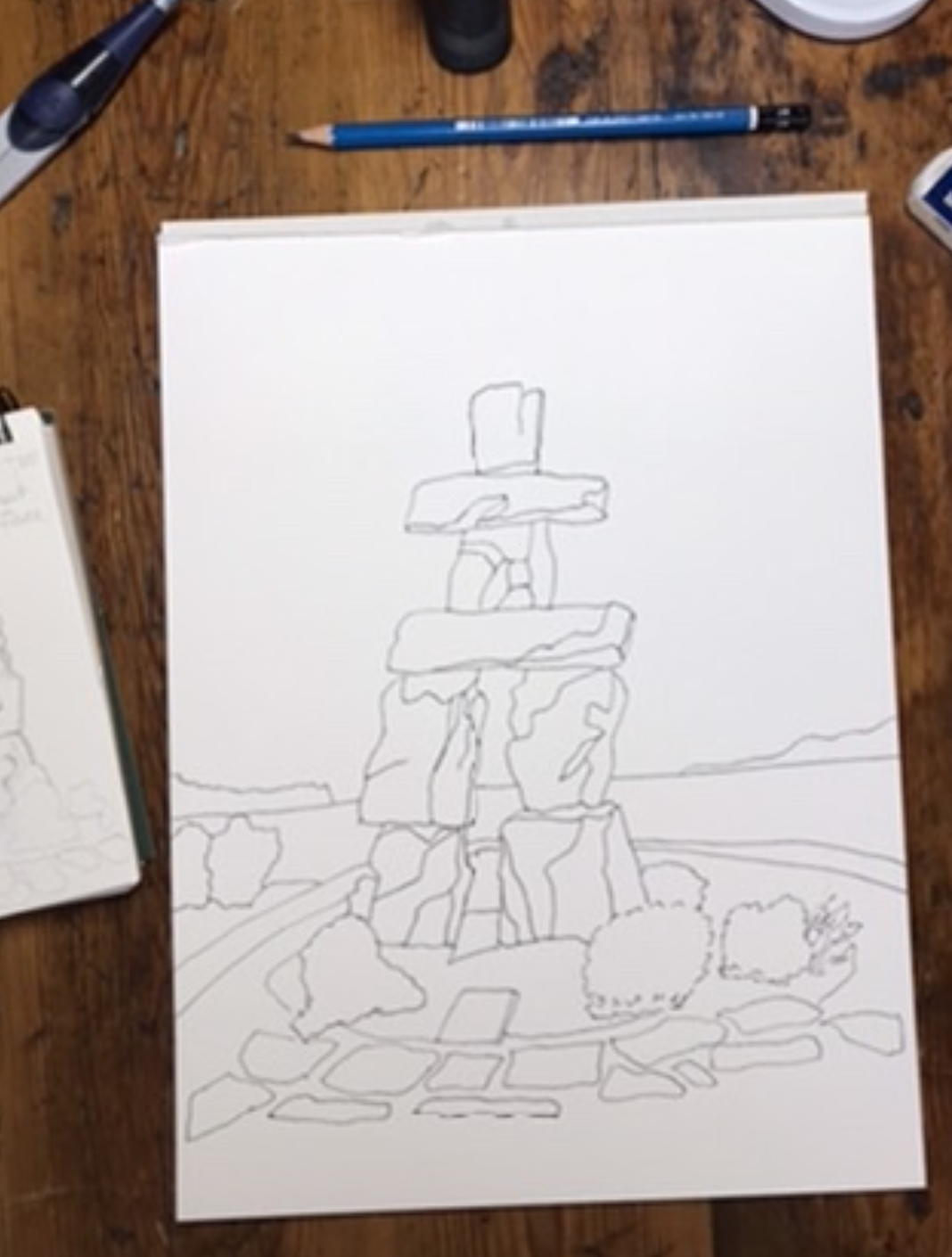
Ink Wash
I use Winsor and Newton black Indian ink which is both permanent and waterproof. In my palette I’ve got the main black ink in the one well and then the well below has water.
I’m trying to mix it two parts water to one part ink, so one drop of ink to two drops of water to make a light grey. I go down thinning and thinning and filling the wells until I’ve got the very lightest grey at the bottom.
My plan here is to put the lightest ink on the page first and then work up to the darker inks. The reason you want to do the lighter inks first is because ink is unforgiving, and you cannot lighten afterwards but you can always darken. This is something I’ve learned so there’s a tip for you.
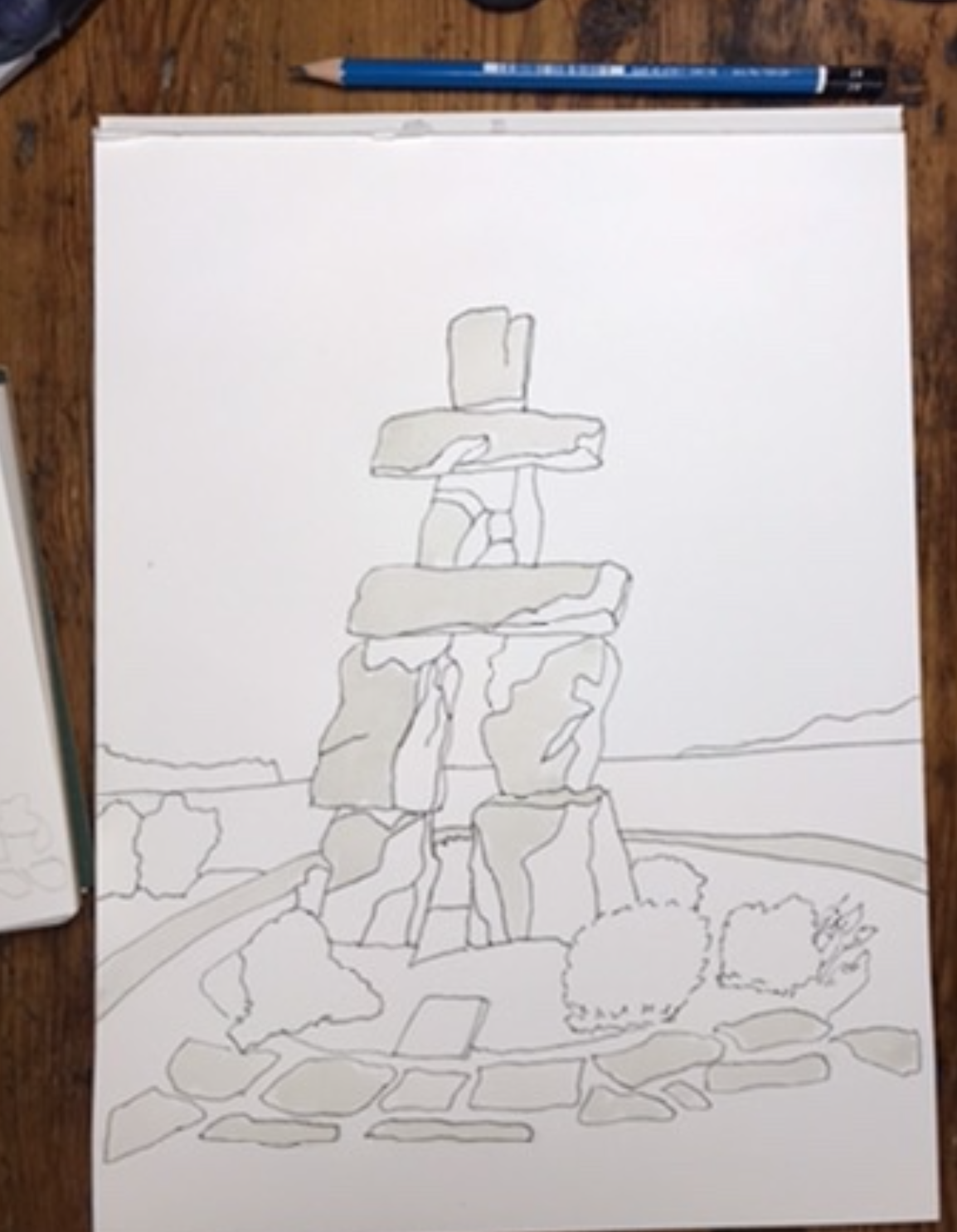
Mid Grey
I moved onto my next lightest grey and added some shades and shadows to the stonework. I continued on slowly and carefully building up the grey stone to the darkest shadows. I didn’t use plain black on these deep shadows. I diluted dark grey from the black ink.
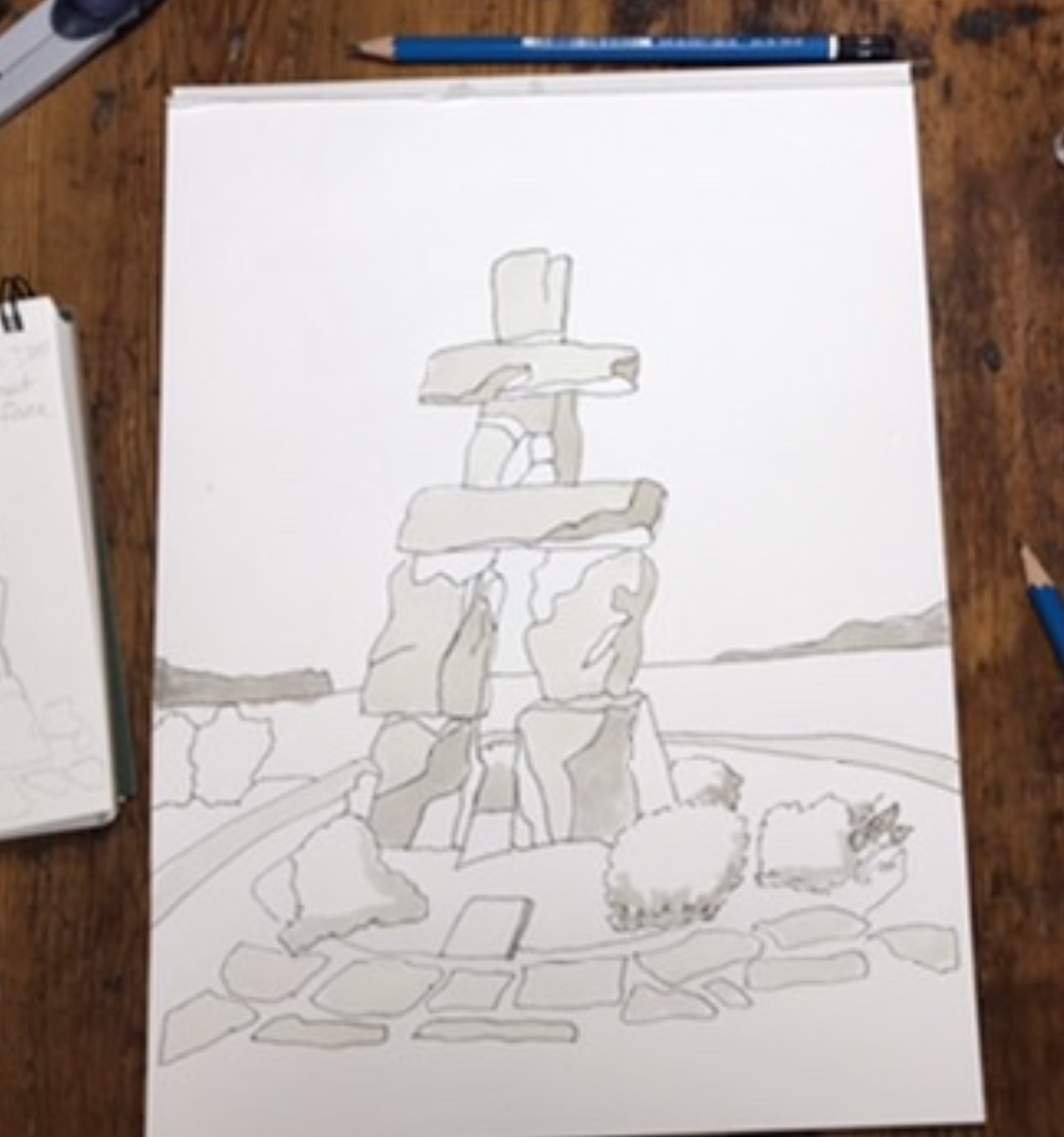
Dark Grey
Between each of the different shades of grey I let the ink dry thoroughly. I made sure to have a very thin paintbrush because I did want to have good control over the ink on this drawing. In the past the ink has run away from me and I was trying to avoid that.
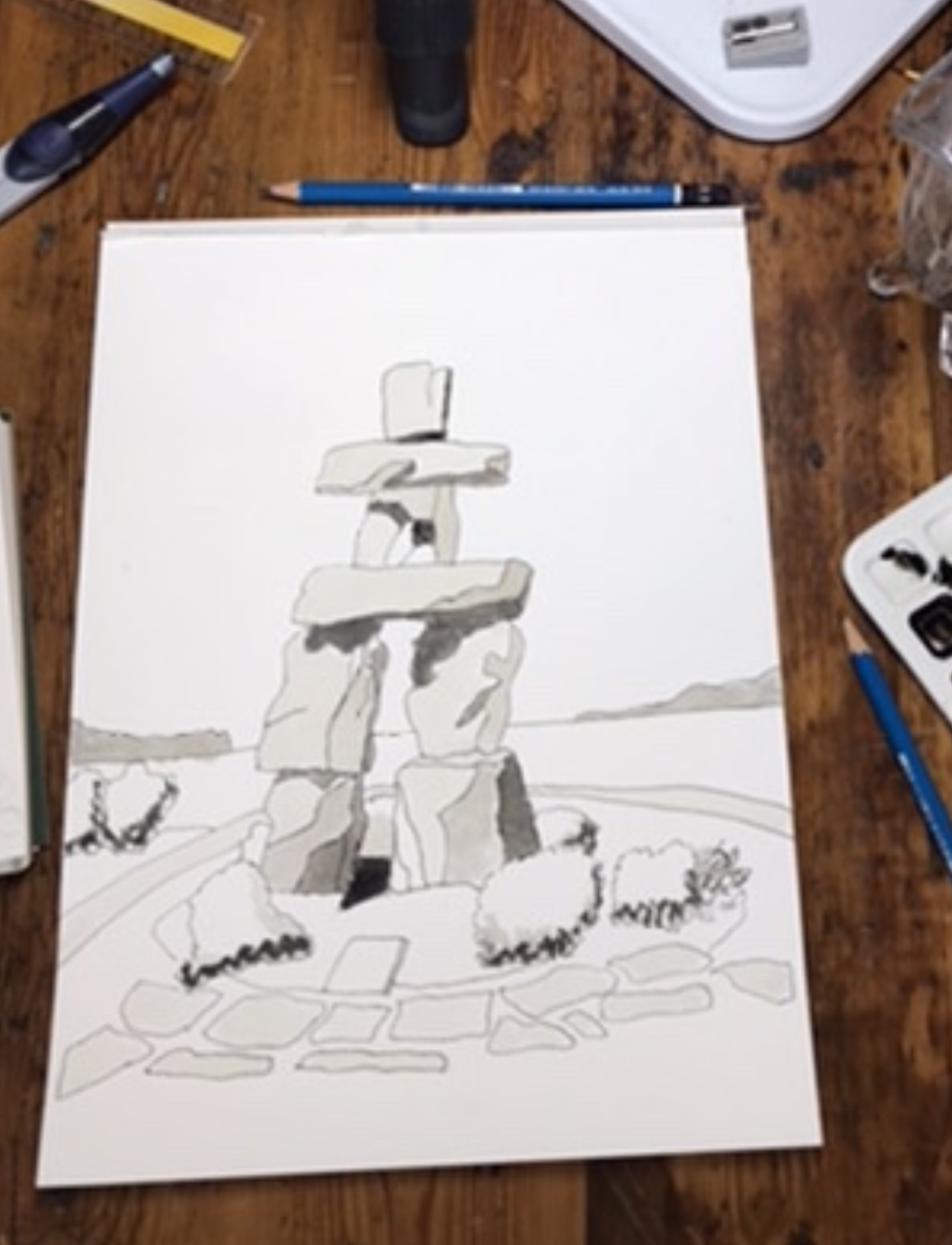
Gardens
To colour in the greenery in the gardens below this statue, I mixed some super light grey. I painted some of the bushes with this colour. For the shade under I added an absolute dash of black to give a darker colour to these bushes.
The Sea and Sky
For the sea I took even lighter grey and watered it down to give a light wash depicting the sea. I left the very pale sky as the white paper.
Black Pen
I went back over and added some extra black pen where I felt it was required it just to sharpen up the image. I signed it in the bottom right-hand corner with the pen. I was using watercolor paper, however, it still did buckle, so I will put it under some heavy books to flatten it out.
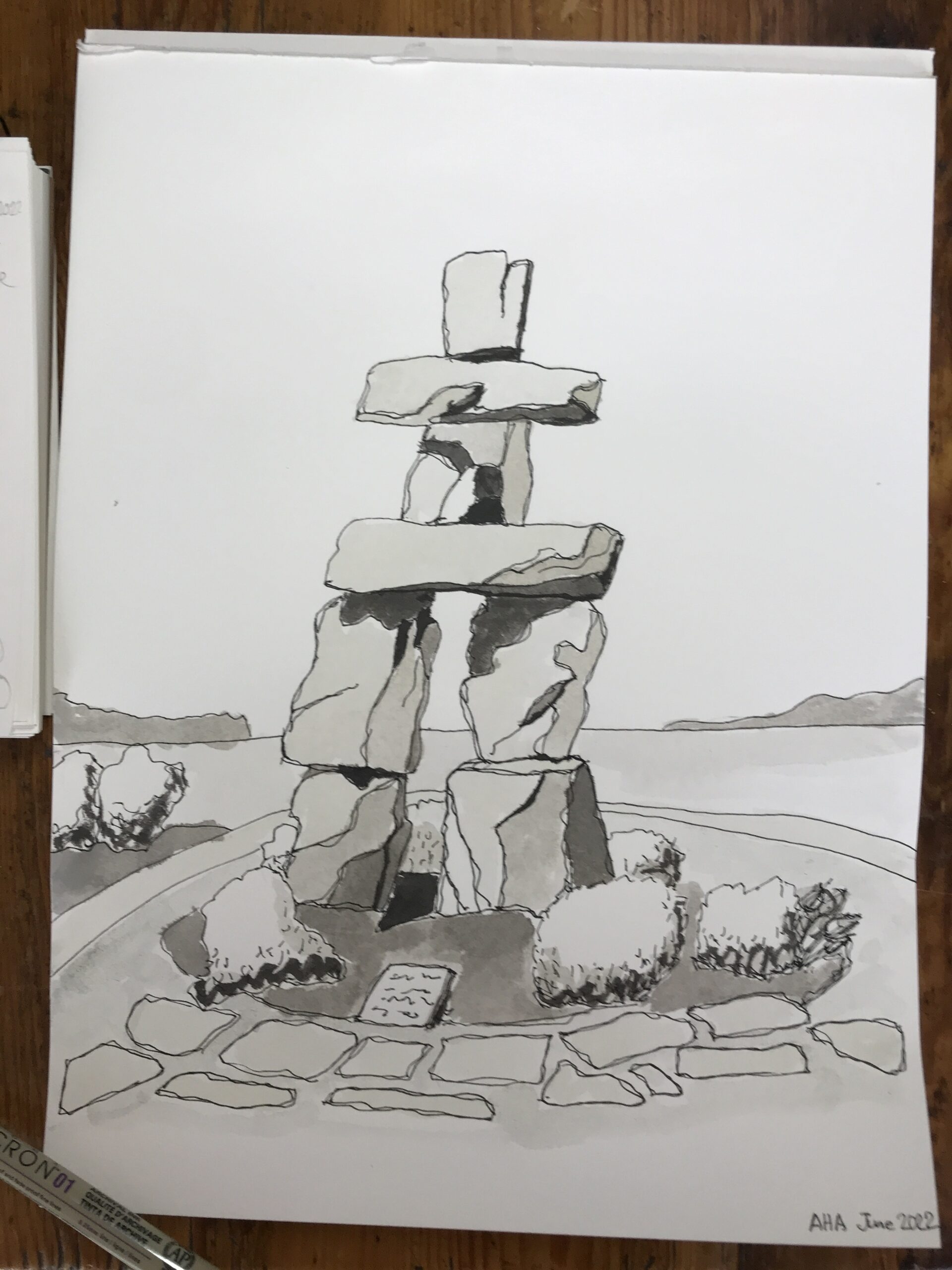
Vancouver Nature Map
I created my Vancouver Nature Map to show where I was when I made the sketches in my Perpetual Nature Journal. This time I was further down the coast from the Canada Geese from last time. In time, I hope It becomes a record of my nature journaling in my local area.
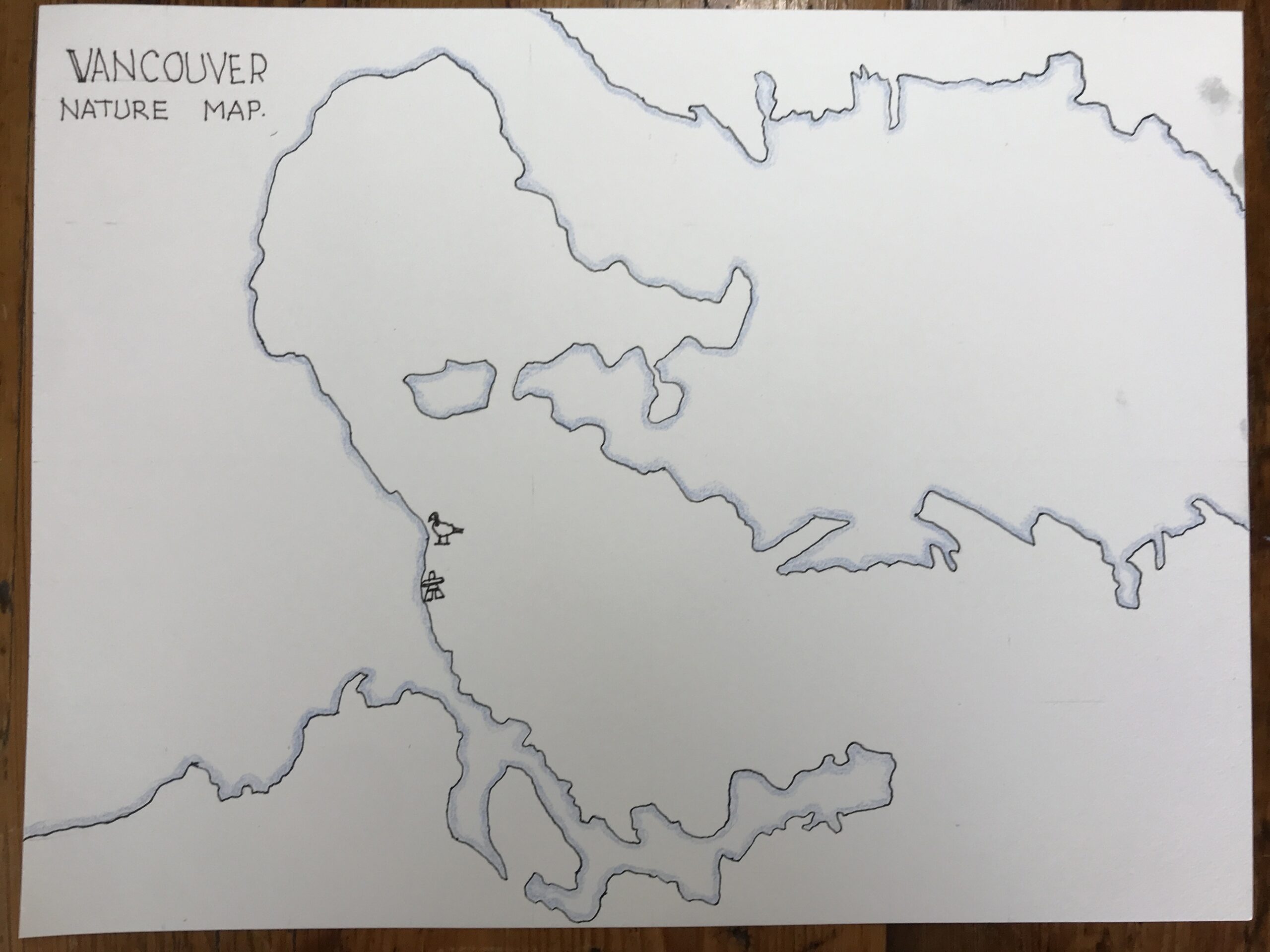
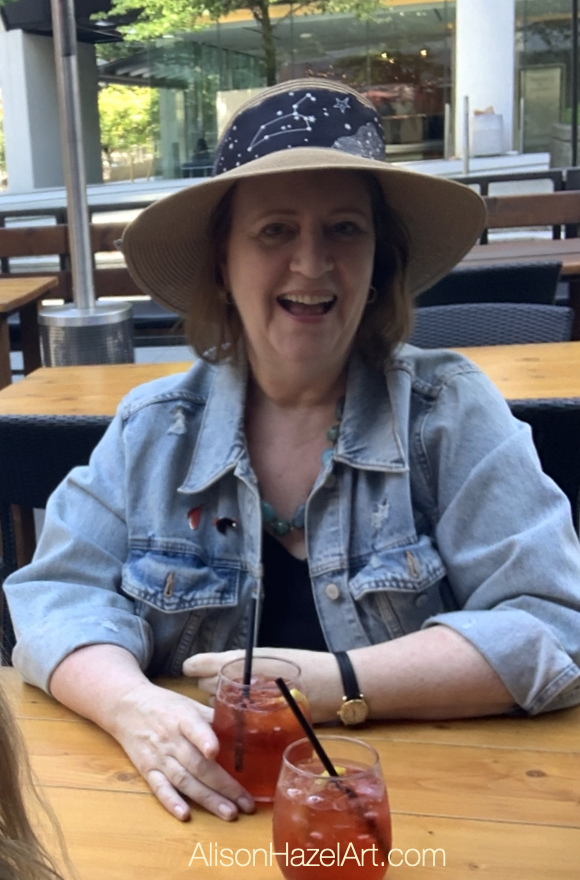
Author Bio: Alison Hazel
Alison Hazel is a hobby artist and she shares her ongoing journey about becoming an artist later in life. She creates simple art that anyone can make. She hopes to inspire you to reach your creative potential in the area that suits you.
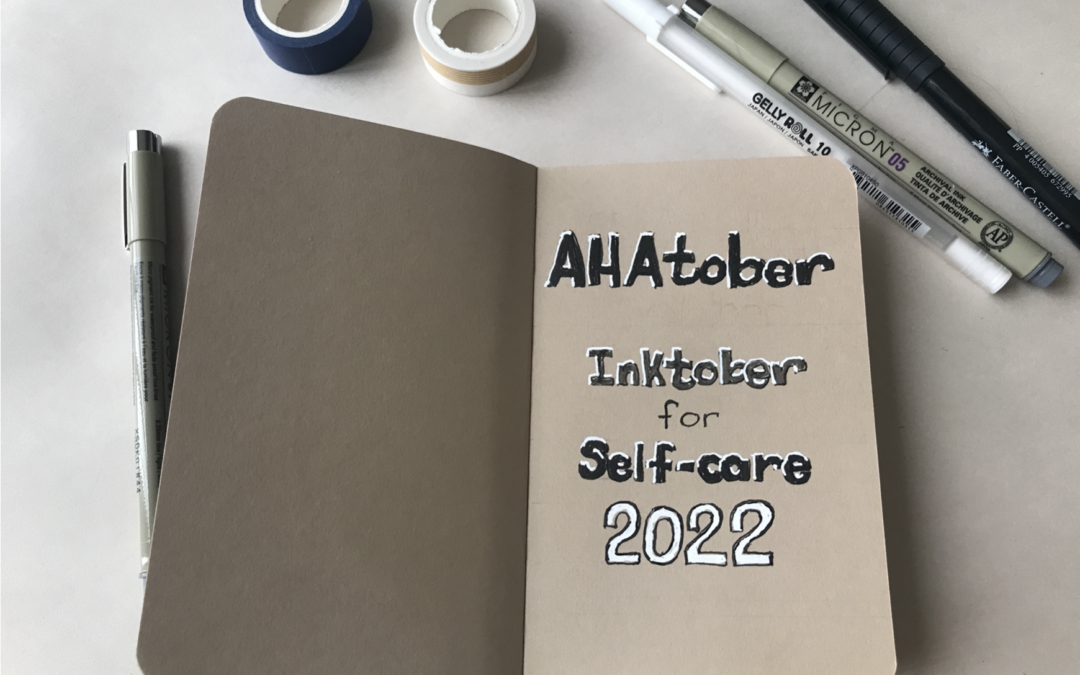
AHAtober 2022: Inktober for Self-care
Get the AHAtober prompts and learn how you can win Inktober, what I’m doing to compete and what to do with what you draw.
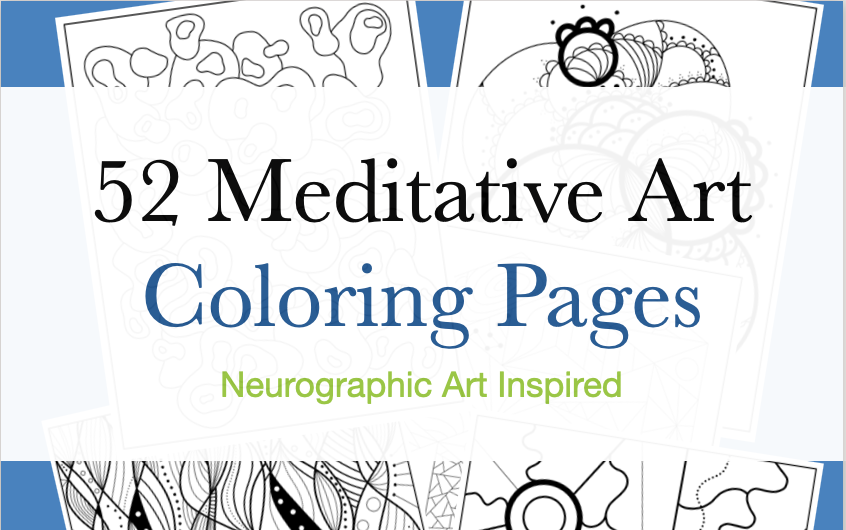
Meditative Art Coloring Pages
Author: Alison Hazel - Published: January 2025 Welcome Introduction This Meditative Art Coloring Pages: Neurographic art inspired for self-care represents the initial release in a series of coloring pages and created by artist Alison Hazel. Self-care These...
